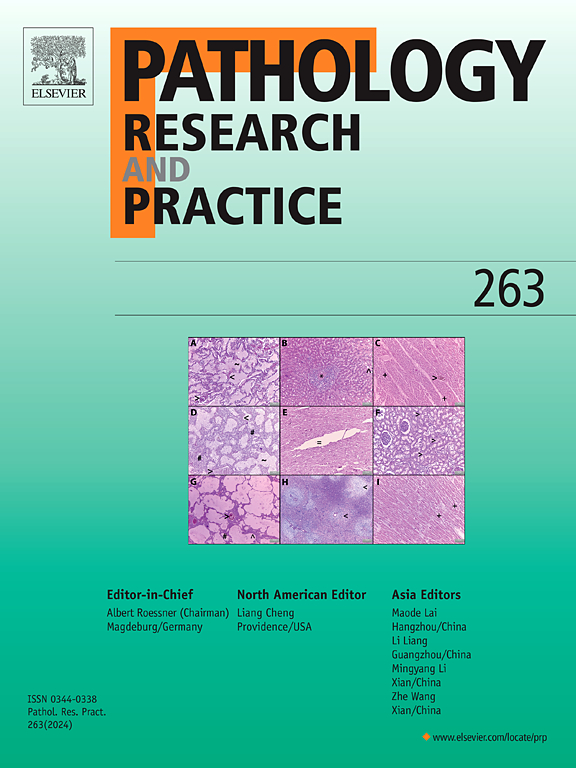Beyond the brain: Reelin's emerging role in cancer pathways
IF 2.9
4区 医学
Q2 PATHOLOGY
引用次数: 0
Abstract
The glycoprotein Reelin is essential for neuronal migration during embryonic development and is involved in various cellular processes. It interacts with specific lipoprotein receptors to regulate neuronal migration and synaptic plasticity. Recent research has expanded our understanding of Reelin's functions, revealing its involvement in processes such as cell proliferation, activation, migration, platelet aggregation, and vascular development. Reelin's influence extends beyond neurodevelopment, with abnormal expression observed in several cancer types. This suggests a potential connection between Reelin dysregulation and tumor formation. Altered Reelin levels correlate with increased tumor aggressiveness, metastatic potential, and poor patient outcomes. In cancer, Reelin affects key cellular processes including proliferation, migration, and invasion. Evidence indicates that Reelin modulates important signaling pathways like PI3K/Akt and MAPK, contributing to the development of cancer hallmarks. Its interactions with integrins and matrix metalloproteinases imply a role in shaping the tumor microenvironment, thereby influencing cancer progression. These findings highlight Reelin's dual significance in neurodevelopment and cancer biology. Further investigation into Reelin's complex functions could lead to new diagnostic tools and therapeutic approaches, potentially advancing cancer treatment through targeted research on its signaling mechanisms. This review provides a condensed overview of Reelin's multifaceted roles in both neurodevelopment and cancer.
求助全文
约1分钟内获得全文
求助全文
来源期刊
CiteScore
5.00
自引率
3.60%
发文量
405
审稿时长
24 days
期刊介绍:
Pathology, Research and Practice provides accessible coverage of the most recent developments across the entire field of pathology: Reviews focus on recent progress in pathology, while Comments look at interesting current problems and at hypotheses for future developments in pathology. Original Papers present novel findings on all aspects of general, anatomic and molecular pathology. Rapid Communications inform readers on preliminary findings that may be relevant for further studies and need to be communicated quickly. Teaching Cases look at new aspects or special diagnostic problems of diseases and at case reports relevant for the pathologist''s practice.

 求助内容:
求助内容: 应助结果提醒方式:
应助结果提醒方式:


